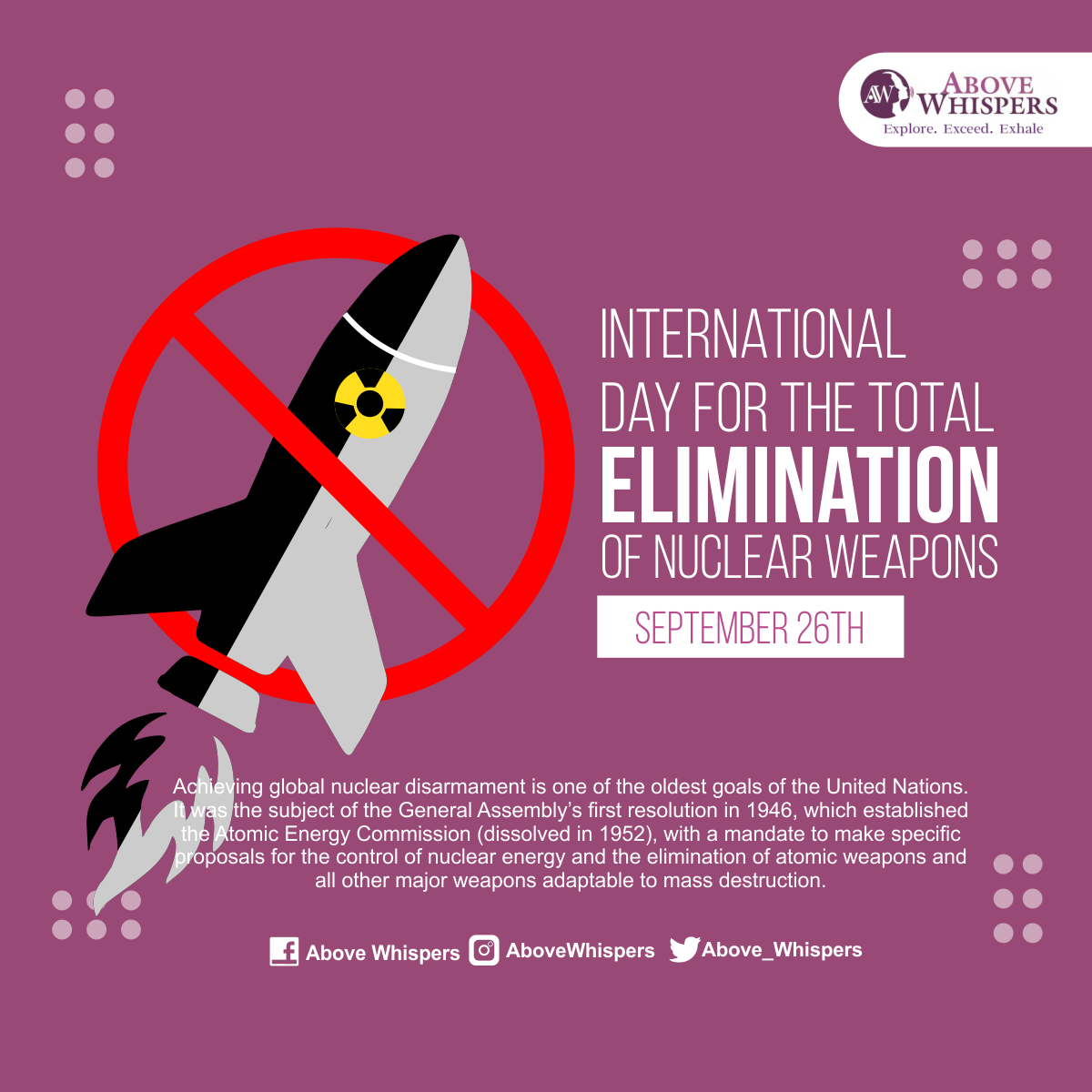Almost 75 years since the adoption of the first General Assembly resolution in 1946 committed the United Nations to the goal of nuclear disarmament, our world continues to live in the shadow of nuclear catastrophe.

Relationships between States possessing nuclear weapons are characterized by division, distrust and an absence of dialogue. As they increasingly choose to pursue strategic competition over cooperation, the dangers posed by nuclear weapons are becoming more acute.
This International Day highlights the need to reverse course and return to a common path to nuclear disarmament.
The use of nuclear weapons would affect all States, meaning that all States have a responsibility to ensure that such deadly armaments are never used again and are eliminated completely from national arsenals.
COVID-19 has exposed a wide range of global fragilities, from pandemic readiness and inequality to climate change to lawlessness in cyberspace; our preparedness to address the threat of nuclear weapons is one of those vulnerabilities. We need a strengthened, inclusive and renewed multilateralism built on trust and based on international law that can guide us to our shared goal of a world free of nuclear weapons.
Those States that possess nuclear weapons must lead. They must return to real, good-faith dialogue to restore trust and confidence, reduce nuclear risk and take tangible steps in nuclear disarmament. They should reaffirm the shared understanding that a nuclear war cannot be won and must not be fought. They should take steps to implement the commitments they have undertaken.
The death, suffering and destruction caused by the atomic bombing in Hiroshima and Nagasaki must not be repeated. The only guarantee against the use of these abhorrent weapons is their total elimination. The United Nations stands ready to work with all States to achieve this shared goal.

